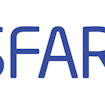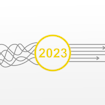
iStock.com/phototechno
SFARI regularly evaluates our requests for applications (RFAs) to determine whether they are maximally effective in serving our mission: to improve the understanding, diagnosis and treatment of autism spectrum disorders (ASD) by funding innovative research of the highest quality and relevance. Ideally, our RFAs would serve to both bring novel and creative ideas to the field, as well as to support ongoing work on high-priority topics. While we feel that our past RFAs have yielded high-impact projects serving each of these goals, we have also noted gaps in certain areas where we could be doing more. In 2021, therefore, we will be making some changes to our RFAs to address priority areas while still providing a mechanism for out-of-the-box thinking and testing novel hypotheses.
Introducing the Human Cognitive and Behavioral Science RFA
SFARI recognizes the importance of, as well as the unique challenges associated with, human research studies in ASD. As such, we are redirecting human cognitive and behavioral neuroscience projects from our standing investigator RFA into a new, investigator-initiated Human Cognitive and Behavioral Science RFA specifically dedicated to human research studies in ASD. Importantly, this RFA allows SFARI to more clearly articulate our scientific priorities and to tailor the grant budget and review processes to better support meritorious science in this research area.
Detailed information and application instructions can be found here.
RFA opens: March 1, 2021
Application deadline: May 3, 2021
Updates to the 2021 Pilot Award Program
This year, the Pilot Award will have a single RFA. The goal of the Pilot RFA remains to provide early support for conceptually novel, exploratory, high-risk and potentially high-impact projects that would be unlikely to be supported by other sources of funding. This funding mechanism is particularly relevant for investigators who are new to the autism field.
Projects proposing research with human participants should be submitted to the newly launched 2021 Human Cognitive and Behavioral Science RFA rather than the Pilot Award RFA. In addition, projects related to sex differences in autism or the impact of COVID-19 during pregnancy on autism risk should also not be submitted to the Pilot Award RFA as SFARI has ongoing initiatives in these areas (for more information, see the 2020 SFARI Collaboration on sex differences in autism RFA and the Maternal COVID-19 RFA).
This year, SFARI will also be launching a number of targeted efforts (see details below); projects encompassed by these efforts should be directed toward these RFAs, rather than the 2021 Pilot Award RFA. Investigators who are unsure of which of the RFAs planned in 2021 would be the best fit for their project can contact [email protected] for further information.
Two-step application process for Pilot Awards
To ease some of the administrative burden on investigators associated with initial applications to this RFA, this year we will be instituting a two-stage application process. Initial applications will contain all the relevant scientific information required for the SFARI science team to judge novelty, relevance and scientific excellence; detailed budgets and institutional sign-off will only be required for applications progressing to external review.
Detailed information and application instructions can be found here.
RFA opens: March 10, 2021
Application deadline: May 6, 2021
Pausing the Research Award program
In order to focus on areas where SFARI can have the most impact, instead of a call for new Research Awards, in 2021 we will focus on specific objectives (for details, see “Targeted initiatives planned for 2021” below). As we regularly evaluate our RFA programs, it is possible that the Research Award RFA will be reinstated in the future, but no specific plans exist at this time.
Targeted initiatives planned for 2021
SFARI is planning several targeted initiatives to be launched in 2021. Investigators whose projects are appropriate to the efforts described below should refrain from applying to the Pilot Award RFA:
2021 Genomics of ASD: Pathways to Genetic Therapies – Request for Applications
Over the past decade, the scientific community has identified more than 100 highly penetrant risk genes for ASD, owing in part to analyses of SFARI-sponsored cohorts such as SPARK, Simons Searchlight, and the Simons Simplex Collection. Although genetic findings have allowed for a better understanding of the biological underpinnings of ASD, much remains to be done to elucidate the complexity of ASD genomics, and to use this knowledge to develop new genetic therapies.
Grants awarded through this RFA are intended to advance our understanding of the genetic basis of ASD and the molecular and cellular consequences of genetic risk, and to provide a foundation for the development of treatments for select genetically defined forms of the condition. Special emphasis will be placed on the use of scalable methods, especially as applied to genes that are suitable targets for genetic therapies.
To answer questions about this RFA, SFARI will hold an informational Zoom meeting on May 20, 2021 at 1:00 p.m. EDT. Interested applicants can register here.
Detailed information and application instructions can be found here.
RFA opens: May 3, 2021
Application deadline: July 6, 2021
Autism Rat Models Consortium – Request for Applications
SFARI has supported the development and characterization of genetically-modified rat models for autism. To enhance these efforts, SFARI intends to release a targeted RFA in mid-2021 for investigators to participate in a research consortium focusing on the strengths of the rat as an experimental model system. It is expected that participating investigators will demonstrate strong expertise in behavioral and/or circuit neuroscience, and actively contribute to the intellectual pursuits and open-science ethos of the research consortium.
RFA opens: July 6, 2021
Application deadline: September 7, 2021
Analysis of postmortem brain tissue from the Autism BrainNet collection – Request for applications
Over the past five years, Autism BrainNet has amassed a large collection of postmortem brain tissue from individuals with and without autism that will allow for replication of previously published findings and new discoveries. The tissue and associated donors’ clinical data are currently available for distribution to approved researchers, and whole-genome sequencing of the tissue is underway. SFARI is anticipating a funding call for studies of this collection that will compare bulk-tissue and single-nucleus gene expression. Analyses may also include alternative splicing, RNA editing, non-coding RNAs, epigenetic modifications and/or proteomics.
RFA opens: November 22, 2021
Application deadline: January 10, 2022
Large-Scale Use of Induced Pluripotent Stem Cells to Elucidate ASD Biology
SFARI is creating a large induced pluripotent stem (iPS) cell resource from more than 100 participants in Simons Searchlight. With the advent of new methods that enable well-controlled, quantitative analysis on a large number of samples in parallel, this resource by itself or in combination with others presents a unique opportunity for large-scale, comparative studies across iPS cell lines with mutations in ASD-linked genes and multiple variants within one gene. We anticipate a targeted call for innovative proposals that take advantage of this resource to study genetic, molecular and cellular mechanisms of ASD later in 2021.
The Microbiome in Autism
Over the last six months, SFARI has consulted with over 50 external researchers as part of an in-depth analysis of the state of the field in understanding the microbiome-gut-brain-autism axis. We are working with a small group of researchers to develop a framework for designing integrated multi-omic studies in this space, and depending on the results of that work, we anticipate making some type of funding call in this area later in 2021.
Additional information
These changes are meant to reaffirm SFARI’s commitment to supporting outstanding autism science across a wide range of disciplines. Autism research is an exciting and challenging field, and our goal is to keep evolving our funding strategies to best drive the science forward.
Over the next few months, we will be providing more information about our planned targeted initiatives via SFARI.org and the SFARI newsletter. To receive updates about SFARI news and funding opportunities, please subscribe to our newsletter. In the meantime, we welcome your feedback on the scientific priorities and procedures we should consider at [email protected].
We are excited about these upcoming changes and look forward to engaging our community even more effectively.
More information about SFARI scientific priorities can be found here.
Updated 12/15/21
- SFARI Summer 2020 Pilot awardees announced
- New collaboration between SFARI and Nancy Lurie Marks Family Foundation will generate hundreds of iPSC lines for autism research
- New rat models available to study autism spectrum disorder
- Upcoming changes to SFARI’s requests for grant applications
- SFARI RFA reboot: Why, what and how


